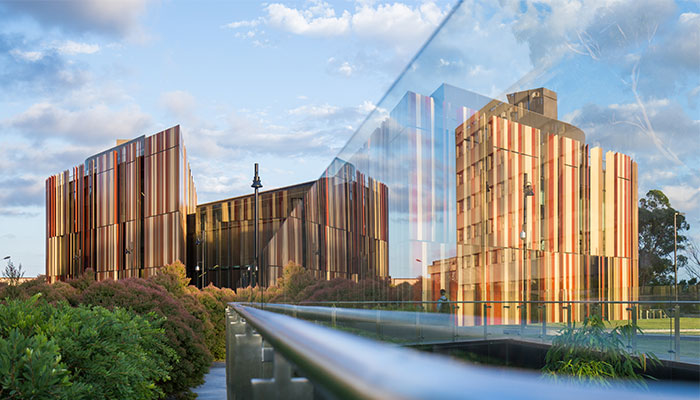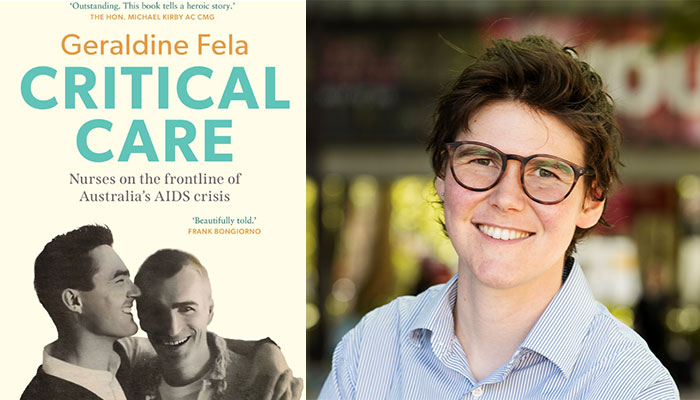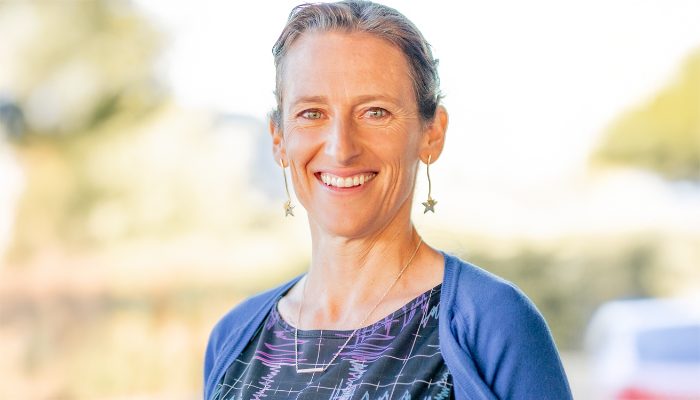An investigative study into the evaluation of disease and cost burdens of “overdiagnosis” has been announced as one of several new research projects within the University to be awarded an Australian Research Council (ARC) grant.
The Australian government announced today that the project “Defining disease: addressing the problem of overdiagnosis”, lead by Professor of Clinical Ethics Wendy Rogers, has received a Future Fellowship worth $820,156 over four years.
The project will investigate and define the limits of physical disease, to answer questions about when a presentation is a disease, and when it is simply a risk factor or mild condition.
The ensuing account of disease will make a practical contribution to growing international concern about asymptomatic people being diagnosed and treated for conditions that will not cause any health problems (overdiagnosis).
The research will provide grounds for evaluating disease claims. Results will reduce the harm caused by people receiving treatment that they do not require, make a practical contribution to debates about the scope of health care, and yield findings that can help to reduce the cost-burdens associated with overdiagnosis.
A total of 34 Macquarie University research projects were successful in receiving a grant, including eight Future Fellowships ($5, 996, 004 total funding), 21 Discovery Projects ($7, 466, 683 total funding), and five Discovery Early Career Researcher Awards (DECRAs) ($1, 787, 254 total funding).
Macquarie's success rate was significantly above the national average in Discovery Projects and Future Fellowships, and level with the national average for DECRAs.
Future Fellows
Discovery Projects
Discovery Early Career Researcher Awards
The Australian government announced today that the project “Defining disease: addressing the problem of overdiagnosis”, lead by Professor of Clinical Ethics Wendy Rogers, has received a Future Fellowship worth $820,156 over four years.
The project will investigate and define the limits of physical disease, to answer questions about when a presentation is a disease, and when it is simply a risk factor or mild condition.
The ensuing account of disease will make a practical contribution to growing international concern about asymptomatic people being diagnosed and treated for conditions that will not cause any health problems (overdiagnosis).
The research will provide grounds for evaluating disease claims. Results will reduce the harm caused by people receiving treatment that they do not require, make a practical contribution to debates about the scope of health care, and yield findings that can help to reduce the cost-burdens associated with overdiagnosis.
A total of 34 Macquarie University research projects were successful in receiving a grant, including eight Future Fellowships ($5, 996, 004 total funding), 21 Discovery Projects ($7, 466, 683 total funding), and five Discovery Early Career Researcher Awards (DECRAs) ($1, 787, 254 total funding).
Macquarie's success rate was significantly above the national average in Discovery Projects and Future Fellowships, and level with the national average for DECRAs.
Future Fellows
- Dr Andrew Piggott; Project to develop new generation antibiotics, by characterising cellular targets and modes of action of new and historic antibiotic natural products.
- Dr Robert Sinnerbrink; Project to develop a new interdisciplinary framework for understanding cinema’s power to evoke ethical experience via audiovisual means.
- Prof Wendy Rogers; Project to define the limits of physical disease, to answer questions about when a presentation is a disease, and when it is simply a risk factor or mild condition.
- Dr Dayong Jin; Project to develop new nanophotonic luminescent probes to measure hitherto undetectable rare-event molecules and cells, for the discovery of new biomarkers.
- Dr Richard Menary; Project to advance understanding of the influence of the cultural and social environment on our cognitive capabilities.
- Dr Yingjie Yang; Project to develop a novel seismological approach combining both ambient noise and earthquake data that can image small-scale upper mantle convection.
- A/Prof Simon Griffith; A comparative project for insight into the patterns of reproductive failure and changes in breeding and migration times in birds, related to a changing climate.
- Prof Bridget Griffin-Foley; Project to map the voices of media audiences since the rise of the radio.
Discovery Projects
- Prof Roger Chung; Project to investigate a regenerative mechanism in the injured brain.
- Prof Robyn Dowling; Project to develop a framework for non-private-car transport forms.
- Prof Xuan Thinh, Duong; Harmonic analysis study of partial differential equations with non-smooth coefficients on domains with rough boundaries and on general metric spaces.
- Prof Ewa Goldys; Project to unveil quantum-mechanical effects of energy transfer, and to harness resonance to yield ultrabright nanoscale light sources.
- A/Prof Barbara Griffin; Project seeks to explain late-career motivation in aging workforce.
- Dr Michael Ireland; Project to create 3D photonic technologies operating in the mid-infrared capable of discovering exoplanets.
- Prof Trevor Johnston; Project to determine what relationship gestures have to language.
- Dr Darrell Kemp; Project to determine the consequences of sexually antagonistic evolution in the butterfly Eurema hecabe.
- A/Prof Sachiko Kinoshita; Project uses computational modelling and behavioural experiments to extend scope of the Noisy Channel model to interpret “jubmled wrods”.
- Prof Stephanie Lawson; Project to investigate regional politics in the Southwest Pacific from the early post-war period to the present.
- Prof Lori Lockyer; Project to characterise how expert teachers approach learning experience design.
- Dr Virginia Madsen; Detailed study of Radio National to map the platform’s contribution to Australian public life, media and culture.
- A/Prof Annabelle McIver; Development of new techniques for measuring the extent to which computer systems can defend against threats to privacy.
- Prof Igor Shparlinski; Project to advance the interplay between additive combinatorics, number theory, and graph theory.
- Dr Sandra Suchet-Pearson; Development, with Yolŋu knowledge authorities, of a two-ways learning communication approach to inform cross-cultural collaboration.
- Prof David Throsby; Project to address impact of e-books on authors, publishers, readers.
- A/Prof Jane Torr; Analysis of the conditions for rich interactions in day care centres.
- Prof Vijay Varadharajan; Project to propose new security models to secure cloud data.
- A/Prof Ellie Vasta; Analysis of the affinities that link diverse groups and individuals in multicultural Australia.
- Prof Mark Westoby; Project to investigate leaf nitrogen to explain the decline in photosynthetic nitrogen with leaf age, and levels from leaves across species and habitats.
- Prof Jian Yang; Project to explore and improve service interoperation in e-Business.
Discovery Early Career Researcher Awards
- Dr Graeme Lloyd; This project will use the fossil record to establish whether swimming or flying are key traits in long-term organism survival.
- Dr Simon McCarthy-Jones; Project to better understand the experience of inner speech and how brains distinguish between this experience and the words others speak to us.
- Dr Tom Murray; This project will use documentary film and 'reconciling' research methodologies to repatriate significant Australian cultural records from a WWI PoW archive.
- Dr Brent Nongbri; A fresh investigation of the earliest remains of the New Testament, with an historiographical analysis of their use in the academic world and popular media.
- Dr Regine Zopf; This project will use innovative virtual hand technology to investigate the impact of body actions on concurrent visual perception.



